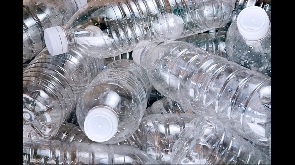Plastic products or materials can be good or bad, depending upon the use they are put to.
For instance, a plastic carrier bag is better than the paper one because it can save things kept in it from getting destroyed by water.
Besides, even though paper products degrade much faster than plastic ones, they require a large amount of natural resources like trees and water to create and the manufacturing process creates a lot of waste that can be difficult to remove.
However, while plastic products also require resources and energy to be created, they make up for it by being easier to recycle and having a far longer lifetime.
Today, plastic has become an important material in a number of industries like the automobile but experts continue to question its use in the food industry because of its harmful effects on the health of people.
For example, a urologist consultant at the Tamale Teaching Hospital, Dr. Akisbadek Afoko, has stated that chemicals in plastic products used in the food sector account for increased male reproductive disorders, including low sperm count, low libido, kidney stones and malformed penis, particularly among young people in the country.
He explains that the chemicals mix up with water and food preserved in the plastics, which, when constantly consumed, affect the reproductive hormones.
Before Dr. Afoko would make this pronouncement, others had spoken about issues like the harm one would suffer for eating hot or warm food from plastic containers or packages.
Some even caution that it is not safe to consume water or drinks in plastic bottles and other containers left on the sun as the heat from the sun causes chemicals to leach into the liquid food.
However, it is commonplace in the country that water in sachets and plastic bottles, as well as drinks in plastic bottles, are left on the sun for as long as these products would be bought.
It is a pity that majority of the people, both young and old and including pregnant women, as innocent as they are, patronise the water and these drinks on daily basis.
No wonder Dr. Afoko says babies as young as three, four and six months suffer from reproductive health disorders and that not less than 10 children weekly undergo surgery at the Tamale Teaching Hospital for defects in their male reproductive system.
Dr. Afoko appears to be giving the impression that only males suffer the harmful effects of plastics so far as food is concerned, and so we wish to erase that by saying that as any scientist would, he just concentrated on an area of concern in whole broad and boundless subject, the harmful effects of chemicals in plastic materials or products.
We think he has done a yeoman’s job by calling attention to an area of health, male reproductive health, which attracts little attention.
We, therefore, join him in his appeal for equal attention for male reproductive health just as the female counterpart is given.
We also support his call for intensification of public education on the harmful effects of plastics on the health of humans and for legislation to regulate the use of plastics.
Plastics have been creating health as well as environmental problems nationally and globally and it is about time the country fought the plastic menace to safeguard the health of the people and the environment.
Editorial News of Thursday, 15 June 2023
Source: ghanaiantimes.com.gh
Editorial by Ghanaian Times: Let’s fight plastic menace!
Entertainment
















